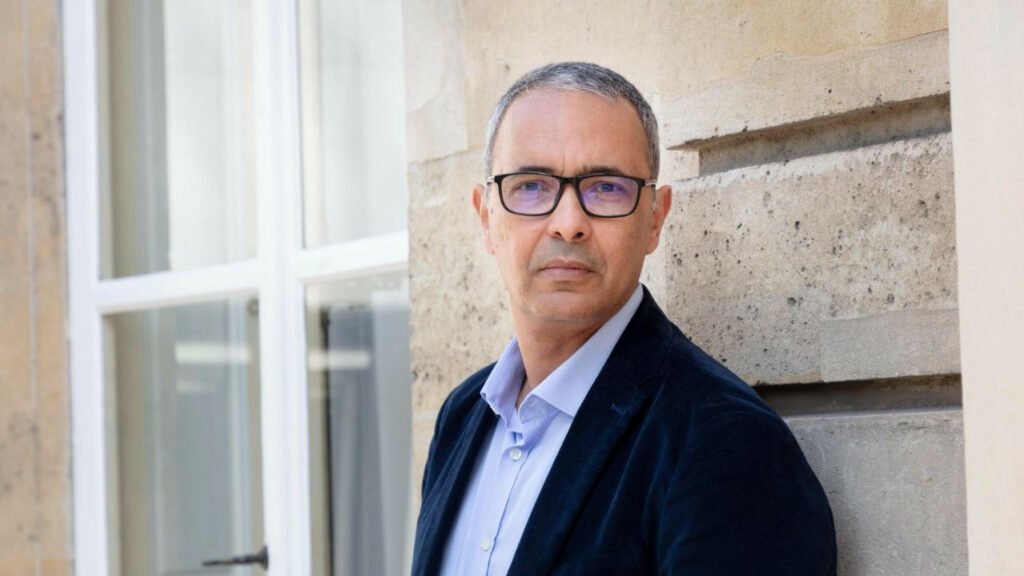For the first time, an Algerian author, Kamel Daoud, has won France’s prestigious Goncourt Prize for his novel Houris, which presents a harrowing portrayal of Algeria’s civil war during the 1990s.
This conflict, known as the “dark decade,” saw up to 200,000 people killed in brutal massacres, often blamed on either Islamist militants or the Algerian army.
In Houris, Daoud tells the story of Fajr (meaning “Dawn” in Arabic), a woman who survived an attack by Islamist fighters that left her with a scar resembling a smile on her neck.
Using a speaking tube to communicate, Fajr recounts her experiences to her unborn child, offering a haunting perspective on the trauma inflicted on Algerian women during this period.
The Goncourt committee praised the book’s dedication to “giving voice to the suffering of a dark period in Algeria,” highlighting how literature can preserve memory in a way that goes beyond historical records.
Ironically, the novel is unlikely to reach many Algerian readers. Currently, the book lacks an Algerian publisher, and its French publisher, Gallimard, has been barred from the Algiers Book Fair.
News of Daoud’s historic win had yet to be covered in the Algerian media a day after the announcement.
Furthermore, Daoud faces potential legal risks under a 2005 Algerian “reconciliation” law, which criminalizes public discussions of the civil war, classifying such acts as “instrumentalising the wounds of the national tragedy” and punishable by imprisonment.
This policy has rendered the war almost a forbidden topic in Algeria. Daoud shared that his own daughter, who is 14, was unaware of the civil war due to its absence from school curricula.
Daoud’s own experiences as a journalist during the war years provided a grim perspective on the daily atrocities of the conflict.
Working at the Quotidien d’Oran newspaper, he witnessed the morbid routine of counting bodies, only to have the numbers manipulated by authorities to align with their desired narrative.
Reflecting on that time, he recalled, “You develop a routine. Come back, write your piece, then get drunk.”
Over the years, Daoud’s forthright views and criticism of Algeria’s political and social landscape—especially the treatment of women—have distanced him from the government.
He argues that while Islamist forces may have lost militarily, they retained significant influence over Algeria’s political and social norms.
His work encourages Algerians to critically engage with all facets of their history rather than glorifying selective parts.
Daoud’s earlier work, The Meursault Investigation, gained international acclaim as a modern reinterpretation of Albert Camus’s The Stranger and was shortlisted for the Goncourt in 2015.
Following political pressure, Daoud relocated to Paris in 2020 and acquired French citizenship, a move he described as a necessary “exile.”
Also read: Selena Gomez On Her Most Challenging Role Yet In Spanish Musical ‘Emilia Pérez’
